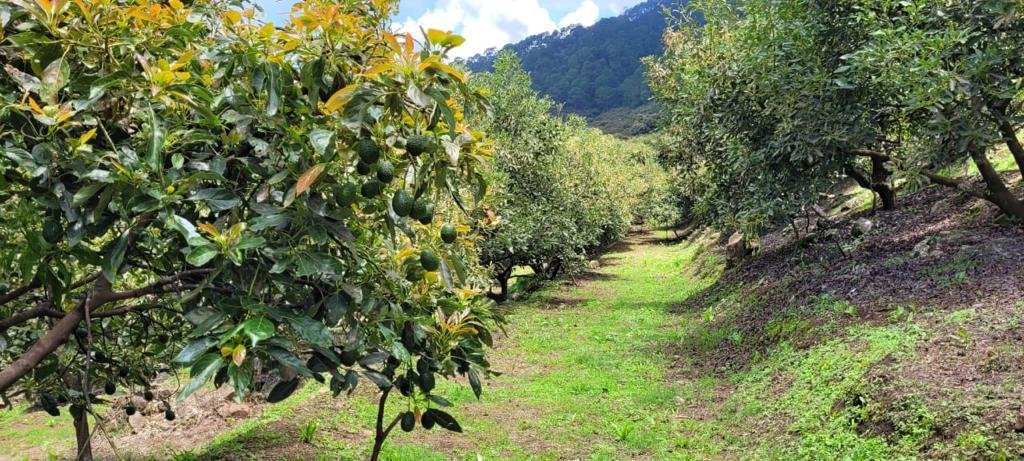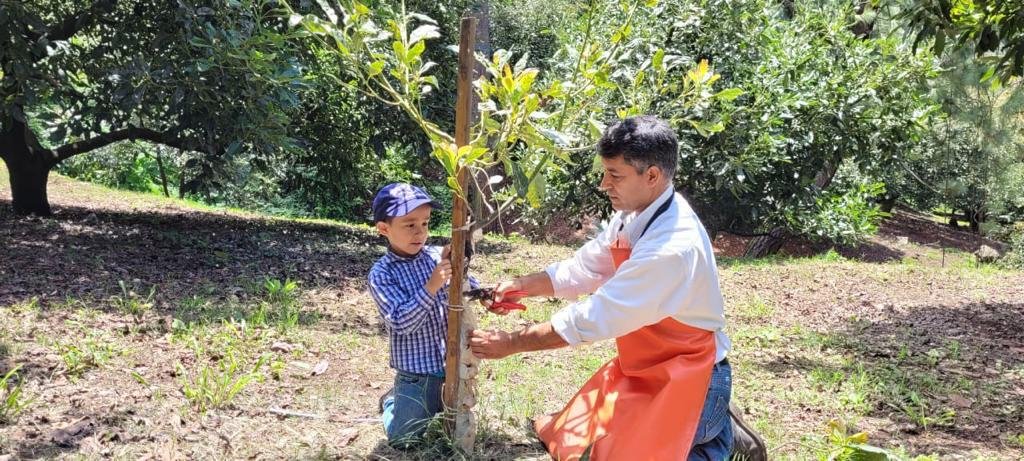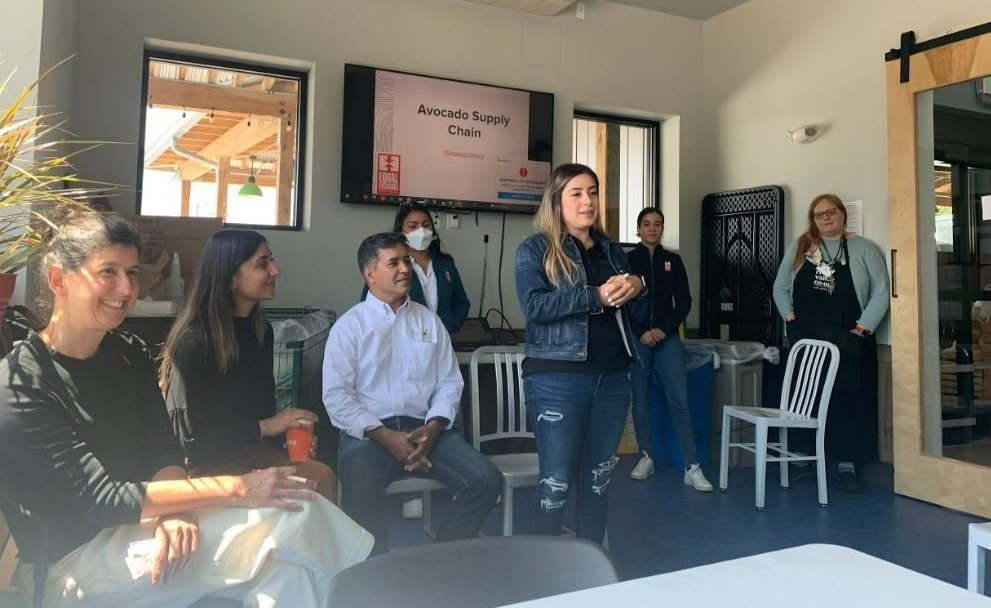Cooperatively Grown Avocados: An Interview with PROFOSMI
Avocado orchard of Alvaro Garcia, a PROFOSMI producer-member
We all have differing knowledge of the fruit that has quickly become a staple in the North American diet. Through years of successful marketing, consumers have been taught the many health benefits of consuming avocados and that they spread well on toast. Most of us are aware they are native to Mexico, where 88% of the United States’ imported supply comes from. But what does life look like for a small-scale avocado farmer in the Mexican state of Michoacán? And what is the actual difference between a conventional and an Equal Exchange avocado?
These are the questions the Equal Exchange produce team seeks to answer and conceptualize through our producer partnerships. Our producer-partners serve as a pillar in strengthening the presence of organic, cooperatively grown avocados in the ever-evolving market.
Left to right: Alvaro Garcia, PROFOSMI President and producer; Christina Allex, Supply Chain Coordinator, Equal Exchange; Eunice Jijon Jarquin, Producer Relations Coordinator, Equal Exchange; Karen Quintero, PROFOSMI General Manager; Ravdeep Jaidka, Vice President and Sourcing Manager, Equal Exchange; Alyssa Melendez, Avocado Category Manager, Equal Exchange
Equal Exchange Produce Team meets with Alvaro Garcia and Karen Quintero of PROFOSMI Agricultural Co-op
If you’ve read previous blog posts, you may have learned about the beekeeping project managed by and for local women, many of whom are associated with the PROFOSMI agricultural co-op. In early June, we got the opportunity to meet with two members of the co-op, Karen Quintero, General Manager, and Alvaro Garcia, President and farmer-member. Karen and Alvaro spent three days with the EE avocado team in Massachusetts, holding important conversations and enjoying time together. Many topics were covered, but I’d like to highlight those that truly stuck out to me: the passion and perseverance they embody to grow as a community-oriented, conscious organization.
As of 2022, PROFOSMI has been operating for only three years, and they’ve undergone a multitude of changes in this period. It can be difficult to find harmony as an organized cooperative in a state of plantations. All parties must share a common objective; in this case, Alvaro identified their goals as equilibrium with the environment, traceability from harvest to consumption, and security in operating non-conventionally without compromising financial well-being. Karen highlighted the necessity to continuously return to the distinct needs of all members. If they cannot find equilibrium, there is no harmony, and the organized interests will struggle to achieve their common goal.
“It’s important to integrate members with similar beliefs, who have an idea of the impact their production has on the world. This is principal. It allows us to expand as a company, grow as producers, and enrich ourselves with more experiences.”
Alvaro and his son pruning a young tree
Fascinatingly, equilibrium with the environment is both a goal and an obstacle for a fair trade organic co-op. The producers of PROFOSMI show utter dedication to nurturing the land on which they work. They bear in mind not only the future generations of farmers on that soil, but the impacts of their actions on a global system. For this, Alvaro hopes to use the success of their work with Equal Exchange to inspire others to participate in less aggressive systems. He says,
“PROFOSMI, Equal Exchange, and consumers are playing an important role in deviating from systems that negatively affect the Earth. We make a conscious effort to work within a model that doesn’t continue to damage the environment, and hope to encourage other producers to do the same.”
Karen, with her experience both in packhouses and now managing the farmer cooperative, shared valuable insight on how erratic weather conditions impact the market. The resulting scarcity leads to price instability. “The cooperative provides a form of support in the event of hailstorms, or other factors outside of our control,” she explained, though she acknowledged that such a young co-op requires growth in self-regulation to maintain this security.
Equal Exchange Avocado supply chain presentation at River Valley Co-op
That’s where Equal Exchange finds itself in a position to catalyze the development of small farmer co-ops. Our producer partners are committed to producing high-quality products through sustainable methods. They’re even committed to sharing their experiences with both producers and consumers, as pictured above in a presentation at River Valley Co-op in western Massachusetts. If we can guarantee a seat at the table for producers like Alvaro in the growing U.S. market, we can assure that avocado lovers will always be able to choose quality fruit, grown mindfully by self-sovereign organizations.





